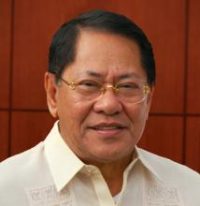At nine in the morning of Thursday, Jan. 18, I received the officers and board members of the Federation of Filipino Chinese Chambers of Commerce in my office at Mabini Hall, headed by their president emeritus Jimmy Tang. We discussed how the federation could assist in employment creation especially in the countryside.
Immediately after Gen. Edgardo Batenga and Gen. Victor Mayo, deputy national security adviser, gave me a briefing on the MILF negotiations. A week ago, the President gave me the go ahead to resume negotiations with both the National Democratic Front and the Moro Islamic Liberation Front. The NDF had given a positive response and I had the initial batch of political prisoners processed for release.
I was voted by Senate President Aquilino ‘Nene’ Pimentel to go to the Senate and attend a lunch testimonial for two policemen who had died trying to defuse the Dec. 30 bomb in Makati.
Early that morning, I had received requests for interviews from the New York Times, Time Magazine and Newsweek. The foreign press must smell something, I thought.
At around 7 p.m of Jan. 18, Finance Secretary Jose ‘Titoy’ Pardo asked me to join him in asking his five undersecretaries to hold back their resignations for a few days. I explained to him that although we understood their feelings, it would not be an opportune time to resign. Believing Titoy and I had persuaded them to defer their resignation, I left and went to Malacañang.
At around 8 p.m., the president was talking to his defense lawyers.He was consulting them on the opening of the second envelope. The President had seen the reaction of the people to the suppression of the second envelope. Feeling he had nothing to hide, President Estrada asked his lawyers to request that the second envelope be opened, despite the fact that he had already won the legal battle over that technical issue.
